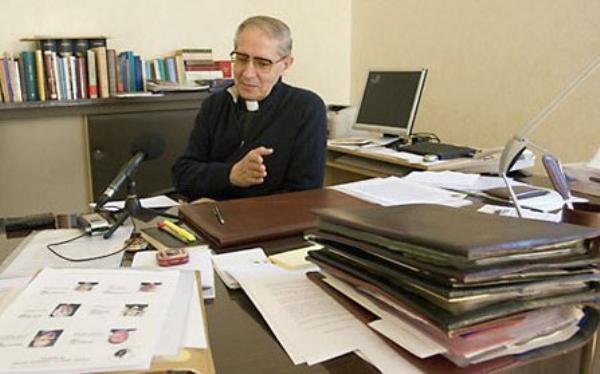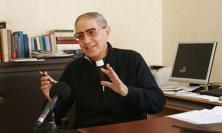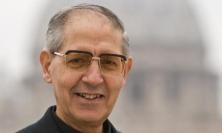In an exclusive interview given recently to the editors of Jesuit journals, Father Adolfo Nicolás, the new Superior General of the Society of Jesus, talks of the challenges now facing the Church, the Society and him personally. In this third and final part, Fr Nicolás talks about how the Society and the Church can maintain a real communion, speaking, listening and improving its pastoral service, in a diverse and fast-changing world.
You speak about unity and communion. In the Society of Jesus, though, and also in the Church itself there is more and more diversity. We can see it as a richness but also as a fragility. How can communion be preserved in spite of such great diversity?
I see this as a tremendous wealth and the way to overcome the obvious difficulties is to contact and communicate. Keep contact and communicate! I see this is what young people do. Young people have a sense of what is happening. They travel, they contact others, and they want to keep in contact. They use blogs and emails. Because if you lose the contact, you also lose the experience. Experiences are very important, but they don’t last, and we easily forget them. For instance, people with their inevitable prejudices go to the developing world; they change; but if they don’t cultivate their new insights afterwards they go back to their prejudices. I have seen non-Christian young people going with the Peace Corps to South-East Asia, Africa or Latin America. When they come back to Japan, immediately they look for other people who have had the same experience because they want to maintain it.
So, it is important for us to keep in touch. We have experienced a great thing in the General Congregation. My question has been: how to expand this experience to the rest of the Society of Jesus? I think we have to produce contacts, particularly for our young people. And this is happening: scholastics having their meetings, European meetings for instance, and some of them are going to the Third World for regency. This is wonderful. This is a way to move to a new age. Everywhere there are borders, but people are going to laugh at them, because borders were made in that particular time to mark us as a sovereign state. But now young people realize it is better to live outside the limits of a sovereign state, in contact with others.
During your first meeting with the press, just after you had been elected, you said that you couldn’t say much about your vision of the Society. Now that the Congregation is over, can you say something more about your vision of the Society?
Through the Congregation I have received a few orientations on the directions we want to take in terms of collaboration, in terms of mission, in terms of areas that would require special concern and so forth. But I still need to know more about the different contexts. It is not the same to hear people speak about particular points as it is to go and visit them and see the world in which they live. Then things make much more sense.
So, you have a vision for your governing, you are going to travel a lot and visit people...
Certainly, as I know from my experience in Asia, if you don’t see the context, it ends up being all ideas. And ideas don’t always leadyou very far. However, you see the context and then you understand.
Today there are many people, especially the young, who find no meaning in Church institutions. Can you understand this attitude, and people who move away from the Church?
Well, yes, I think I can understand it very well because I have felt that way about institutions myself sometimes, so I can understand it. But not completely, because there are many factors in the socio-cultural change that we are going through. One of them is that we are reaping now the bad harvest of a bad sowing. We have not helped the laity as much as we should have in the past and in our own pastoral attitude. I read recently a book by Andrew Greeley, a priest and sociologist in the United States. This book is a study about priests in the USA. It questions many negative stereotypes and offers a very positive image: priests are not strange, their behaviour is no worse than that of ordinary people, Greeley says. But what he doesn’t like at all, what he hates, is clerical culture. He says the worst effect of this clerical culture is that the service of the laity (for instance in preaching and liturgy) is very poor. He makes a sociological study comparing Catholic priests and Protestant pastors. In all of the seven categories he introduces, Protestant pastors are doing much better than the Catholic priests: in terms of kindness to people, in terms of respect for women, in terms of preaching, in terms of care for the problems of youth, in terms of joy and humour and so forth. It is a very interesting study. Particularly in so-called Catholic countries like Spain or Italy, but in many other places too, you look at the service offered in many parishes and in some places there is very little.
In Asia I have been particularly struck by that. Working for many years in a pastoral institute made me aware that the problems are also in the whole of Asia. Often the pastoral work of priests has not been what it should be. For instance, sacraments are to my mind very rich, they are a wonderful opportunity to enrich the life of people, because they have to do with life, they are born from life. We believe that we are in contact with God through the sacraments. They are conduits of grace for us; they are Christ’s own gift to the Church. But sometimes we have cut life out of them and made the sacraments ritual and only ritual, without life. We have been accused of this, and the accusation is true in some ways. Karl Barth said that the Catholics have no “theology of marriage”, they have only a “theology of the ceremony of marriage”. And I think that could apply to other sacraments. We have not given the people the life that fills the Sacraments because we have forgotten or taken for granted the origins, and we give only conclusions. The conclusion is that we have seven sacraments, and you celebrate them following a given way. The lack of inner experience linking the external actions to their significance is what has made our families and our communities very weak. And now the young people find a new culture with new challenges, and they don’t have anything serious to hold onto, anything equally attractive. And that is why now they are attracted to sects and movements. But again, the Vatican made a wonderful study of them about 20 years ago. I was impressed. It was a very good analysis of movements and sects, and why people join them, but we have not taken the study seriously. The study is there, the point is there, but we have not said: “this is what we need to change in our communities.” And in many things it is like this.
The Church has been poor sometimes in its pastoral service. And the consequence is that now we have people who are disenchanted from Christianity and from the Church. In Asia for me it is always sad, because what I see there is how strong Buddhism is. Buddhism has no doctrines, no feasts, a minimum of obligations, and yet millions and millions continue to be Buddhists and keep the Buddhist sense, the Buddhist feeling. Why? Because the core of the Buddhist’s ‘pastoral work’ is to give experience and to help people by directing them to some forms of meditation, of detachment, of inner peace. Well, what we frequently gave were practices, rituals, but we spent very little time on the spirit that breathes life into those practices. In my view this is a very important issue, and it is linked with my first remark. I would like us Jesuits to go deeply into whatever we do. For example, if we are in a parish, that parish has to be revolutionized; we have to respond to the children, the old people, to the young people and to the young couples and see what deeper needs they have and how to involve them. That should be our Jesuit parish, not just a nice parish where everybody is very good and very nice. We should have a deep experience of God in a Jesuit parish. But I know it is not easy. And if we have a school, it has to be different. That is where I think the Magis comes in: it is depth, it is going deeply into whatever issue we have. We have to have contact with God who is at the heart of everything. And today we have issues that, if we don’t go deeply into, we will end up being overwhelmed.
During your first meeting with the press you said that in Spain your Catholicism was a little bit rigid and the experience of the Far East changed you. What has helped you particularly?
What has helped me is being part of the Catholic tradition, which is much more universal than that of my upbringing in one corner of the world. Also, I belong to the Ignatian tradition. You become more flexible; at least I think I became more flexible about understanding doctrines, regulations and so forth because I knew that Ignatius put all these things into perspective. You go the way of the Spiritual Exercises, the way of going deeply into the awareness of how the Spirit is working in you, so that you are led by the Spirit.
Having a source of experience, a direction in the experience is, I think, what brings consolation and makes it possible to be faithful. Otherwise, faithfulness can be just a trivial choice to do what you have always done. And eventually you throw away what feels heavy, in order to make things lighter. But there is something here that you can’t throw away, something very important that Saint Ignatius keeps. But he keeps it in terms of experience, in terms of process, in terms of your own life in relation to the truth of the universal experience of Catholicism. At that point you can say: I can be more flexible towards these or those ideas, but I cannot let go of the spirit. I mean, who am I? The only way to know who I am is by looking inside, using what I have learned from the Church’s experience. That is what we should give young people, not merely exterior things. Sure, gatherings are fine, they like to get together and act together. But when it comes to the question of what it means to be Christian, it should be something that they can say: yes, that is something that I can feel moving me, that is exactly what I want to do. Therefore, let us go deeper into that. We should have offered processes more than just ideas or systems.
The Pope insists on fidelity to Catholic doctrine, to the right expression of Christian faith. Isn’t there a tension between doctrinal teaching and the experience you are talking about, of going deeply into a process of transformation?
There is a tension, and precisely that is where I think the challenge for the Jesuits is. The challenge that we have now, if we take the relationship with the whole Church through the Pope seriously is to present without rigidity what the Holy Father says – not changing it, no, we respect it. But we need to explain to people: what the Holy Father is saying is the end point of a long process, the distillation of Christian experience. If you are interested in knowing in its totality what he means, you have to come to the starting point and enter the process. Don’t start and end with the doctrine because if we start with the conclusion we risk going nowhere. We have to explain: the Pope wants to keep alive something that is going to maintain the tradition of the Church that has lived through thousands of experiences, millions of experiences. If you want to come here you have to start there. Don’t jump to the conclusion. But we jump very often, and we rely on catechisms that are often difficult to digest, that don’t have the texture of all the individual experiences of the members of the community of believers. We Jesuits have to help the Holy Father by making what he says understandable and attractive to the people, we have to build bridges so that people can go through the process. “Don’t fixate on the conclusion, but see that it is true for you, based on your own experiences.”
We can dialogue with everybody because God is living in them. And then, at the end, you will see how a Christian community comes and says: well, all these experiences, we summarize them like this. This creed is a formulation that summarizes our experience. It doesn’t take away all of your experience. It doesn’t suppress your experience. On the contrary it is like an arrow that tells you where to start. The Chinese say nicely (as a matter of fact, it is hard to know if it is a Chinese or an Indian saying because they are equally quoted): “the wise man points to the moon, but the fool looks at the finger”. So, when the Holy Father says ‘look at the moon’ we should not look at his finger. We should keep looking at the moon. Some people get upset because his finger is German; okay, fine, but it’s too bad to limit him that way. But you don’t look at the finger, you look at the moon. I think this is a very good image for what we have to do with the people. People get distracted with fingers all the time. Doctrines help us experience God or help us understand our experiences of God; they are not the experience of God and we should not confuse that.
You often recommend listening not only to the words people say but also to the music behind their words.
I would say that it is more my whole life experience in general rather than Asia that helped me learn this. In Spanish we have a saying that the devil knows more because he is old than because he is the devil. I think it rings true. Through life you realize that experience is a very ambiguous term. Some people in three years can have a very rich experience while other people in thirty years have only one experience repeated 29 times. Experience depends on the ability to see different dimensions and to reflect about them. But it was that experience that made me realize that you can hear the words and yet miss it completely, miss the point. It struck me that what they missed was the music. There is a music, a human music of longings and desires, also of things that are not going well, when people feel that more could be done. That music is what we have to hear. And for young people this is essential. When we were young, we were singing with Frank Sinatra. Now we are singing with rappers and other types of music. There is something in human experience that is not only words and in Asia you have to pay a lot of attention to that music. It is a delicate kind of operation. If we become aware of this then we can communicate better. And understand many things better.
This is the third and final part of an interview with Fr Nicolás conducted by Tomasz Kot SJ and Jan Koenot SJ in Rome on 7 March 2008, two days after the end of the General Congregation. The questions were prepared by editors of European Jesuit journals: Carlo Casalone SJ (Aggiornamenti Sociali), Jan Koenot SJ (Streven), Tomasz Kot SJ (Przegląd Powszechny) and Albert Longchamp SJ (Choisir).
![]() Read Part One of this interview
Read Part One of this interview
![]() Read Part Two of this interview
Read Part Two of this interview
![]() Aggiornamenti Sociali
Aggiornamenti Sociali
![]() Streven
Streven
![]() Przegląd Powszechny
Przegląd Powszechny
![]() Choisir
Choisir





